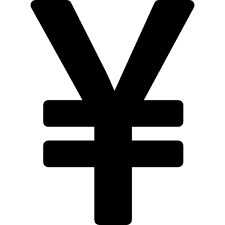 The Bank of Japan meets later this week. We do not think that it will expand its already aggressive monetary policy stance. Given the largely operational adjustments announced last month, it seems premature to expect substantive adjustment now. It is true that the recent string of data has been mostly disappointing, and the yen has strengthened on a trade-weighted basis over the past month.
The Bank of Japan meets later this week. We do not think that it will expand its already aggressive monetary policy stance. Given the largely operational adjustments announced last month, it seems premature to expect substantive adjustment now. It is true that the recent string of data has been mostly disappointing, and the yen has strengthened on a trade-weighted basis over the past month.Our takeaway from talking to Japanese officials is that they are not exceptionally concerned. The economy may have contracted slightly in Q4, but trend growth is so low (~0.5%) than a slightly negative print does not mean what it would if an economy like the US with around 2% trend growth would have a negative quarter or two. Consumer prices, excluding fresh food and energy, rose 0.9% in November, which matches the high since the effect of the 2014 sales tax increase dropped out of the comparison.
Moreover, some officials note that rents in Japan are falling, and this is more of a structural issue than one subject to monetary policy. If rents were excluded, this would push the "core" CPI a bit higher still. Like other central banks, the BOJ is unlikely to want to be seen reacting to the current volatility in the markets, which few see as reflecting a significant change in fundamental considerations.
In an interview at the end of last week, BOJ Kuroda suggested that market turbulence has not adversely impact corporate behavior. The yen is well off the highs seen in the middle of last week. Kuroda did not rule out further easing. He simply indicated that the central bank was in a "wait and see" mode while its current program of increasing the balance sheet by JPU80 trillion a year continues.
Of course, many participants recall the surprise move in 2014, which followed relatively optimistic remarks by Kuroda a few days previously. Once burnt, twice shy.
We suggest that investors instead watch closely the BOJ's inflation forecasts. It is expected to cut next fiscal year's forecast. It will be significant if it is cut below 1%, or is FY2017 is cut from its current from its 1.8% forecast. It would be a recognition of a further delay in reaching its target. If the BOJ were to expand QQE, we expect that would be negative for the yen, though positive for Japanese shares. If it lowers the inflation forecasts, many would see it as a signal that QQE will, in fact, be expanded later, perhaps as early as April.
The second issue on the mind of Japanese policymakers is the Trans-Pacific Partnership free-trade agreement. Leaving aside the fact that the top contenders for the US Presidency have indicated they do not support the agreement, there are a couple of practical issues outstanding.
One such outstanding negotiating point involves the pharmaceutical industry. The US industry is pushing for the longest patent protection while most countries want a shorter period. There looked to be a compromise in the worked out that would be five years and a three-year extension for a total of eight years. However, some countries negotiating TPP are suggesting an agreement has been struck for five years.
Another practical issue is on Japan’s side. The Japanese minister marshaling TPP through the Diet, Amari, has been caught up in a campaign financing scandal. There is some concern that this will sap his ability to ensure TPP acceptance over domestic opposition.
A few officials still hold out the possibility that TPP is approved by a lame duck US Congress at the end of this year. Some Japanese officials have discussed a backup plan. If TPP proves too difficult to achieve, the fallback option could be a US-Japan Free-Trade Agreement. Others may be invited to join after it has been successfully negotiated. This would allow the next US President to put make the agreement their own as opposed to inherited from Obama. In Japan, the Diet will be focused on the supplemental budget in February and March. It will turn to the TPP at the start of the new fiscal year.
Given the pullback in oil prices today, the weakness in equities and the drift lower in US bond yields, the dollar’s resilience against the yen is surprising. It is difficult to draw a hard and fast conclusion, but it seems that fear of a BOJ surprise may be one of the factors keeping the yen down.
Tags:



























